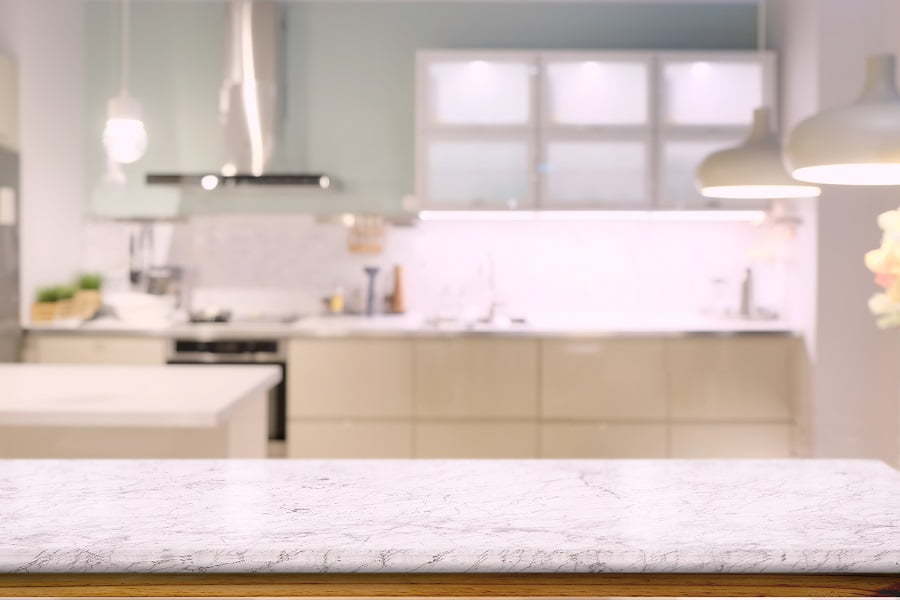Last updated on
Explore the world of eco-friendly alternatives to green soap that are just as effective and good for both your skin and the environment.
Are you tired of using the same old green soap in your home? Maybe it’s time to switch things up and try something new. There are plenty of alternatives to traditional green soap that can add a unique touch to your decor while still keeping things clean and fresh.
In this article, we’ll explore some creative ideas for alternative cleaning solutions that won’t break the bank. Whether you’re looking for a natural option or something with a bit more personality, we’ve got you covered.
So let’s dive in and discover some exciting alternatives to green soap!
What Is Green Soap?
Green soap is a type of soap that has been used for decades in various industries, including the medical and tattoo industry. It’s called “green” because it has a greenish tint due to its natural ingredients such as vegetable oils and glycerin.
Green soap is known for its effectiveness in cleaning skin without causing irritation or allergic reactions.
However, with the rise of eco-consciousness, many people are seeking alternatives to traditional green soap that are more sustainable and environmentally friendly. While green soap may be effective at cleaning skin, it often contains chemicals that can harm both our bodies and the environment.
Fortunately, there are now plenty of alternative options available on the market today! From hypoallergenic soaps to organic plant-based ingredients – you’re sure to find an option that suits your needs while still being gentle on your skin and kinder to Mother Earth.
Reasons to Seek Alternatives
There are several reasons why you might want to consider seeking alternatives. For one, traditional green soap can contain harsh chemicals that may be harmful to both your skin and the environment.
Some people may have allergies or sensitivities to certain ingredients found in green soap.
Another reason is that alternative soaps offer unique benefits beyond just cleaning. Liquid castile soap is an excellent option for those who prefer natural products as it’s made from vegetable oils and contains no synthetic detergents or preservatives.
If you’re looking for something hypoallergenic, there are plenty of options available on the market today that cater specifically to sensitive skin types.
For those concerned about sustainability and environmental impact, organic and natural soaps made with plant-based ingredients are a great choice as they often come packaged in eco-friendly materials such as recycled paper or biodegradable plastic.
Liquid Castile Soap
It’s made from natural ingredients like olive oil, coconut oil, and vegetable glycerin. This type of soap is gentle on the skin and doesn’t contain any harsh chemicals or synthetic fragrances that can irritate sensitive skin.
One of the great things about liquid castile soap is its versatility. You can use it for everything from washing your hands to cleaning your floors! It’s also biodegradable, so you don’t have to worry about harming the environment when you use it.
Another benefit of using liquid castile soap as an alternative to green soap is that it comes in a variety of scents and formulations. Whether you prefer lavender or peppermint, there’s a scent for everyone!
Hypoallergenic Soaps
These types of soaps are formulated with gentle ingredients that are less likely to cause irritation or allergic reactions. They’re also free from harsh chemicals and fragrances that can aggravate sensitive skin.
Hypoallergenic soaps come in a variety of options, including liquid and bar forms. Some popular brands include Dove Sensitive Skin Beauty Bar, Cetaphil Gentle Cleansing Bar, and Vanicream Cleansing Bar.
When choosing a hypoallergenic soap, it’s important to read the label carefully and look for key phrases like “fragrance-free,” “dye-free,” “paraben-free,” or “sulfate-free.” These indicate that the product is less likely to cause irritation.
Organic and Natural Soaps
These types of soaps are made from all-natural ingredients, such as plant-based oils and essential oils, which makes them gentle on the skin while still providing effective cleaning power. They’re also free from harsh chemicals like sulfates and parabens that can be harmful to both your health and the environment.
One popular type of organic soap is castile soap, which is made from olive oil instead of animal fats or synthetic detergents. Castile soap has been used for centuries in Mediterranean countries for its moisturizing properties.
Another option is handmade artisanal soaps that use high-quality ingredients like shea butter, coconut oil, or cocoa butter. These luxurious bars come in a variety of scents ranging from lavender to peppermint.
When choosing an organic or natural soap alternative it’s important to read labels carefully as some products may contain artificial fragrances even if they claim otherwise. Look for certifications such as USDA Organic or EcoCert which ensure that the product meets strict standards regarding ingredient sourcing and manufacturing processes.
Antibacterial Soap Options
Many traditional antibacterial soaps contain harsh chemicals that can be harmful to both the environment and your skin. Luckily, there are plenty of alternative options available.
One great option is tea tree oil soap. Tea tree oil has natural antibacterial properties and can help kill germs without the use of harsh chemicals.
Another alternative is silver soap, which contains tiny particles of silver that have been shown to have antimicrobial properties.
If you’re looking for something with a bit more scent variety, consider trying out an essential oil-based soap like lavender or peppermint. These oils not only smell great but also have natural antibacterial properties.
Tattoo Industry Alternatives
With the rise of eco-consciousness in recent years, many tattoo professionals are seeking out alternative options that are just as effective more environmentally friendly.
One popular choice is to use liquid castile soap, which is made from natural ingredients like olive oil and coconut oil. This type of soap has been used for centuries and is gentle enough to be used on sensitive skin without causing irritation or allergic reactions.
Another option gaining popularity in the tattoo industry is using plant-based soaps that contain essential oils known for their antibacterial properties such as tea tree oil or lavender. These types of soaps not only clean effectively but also provide additional benefits such as soothing irritated skin after a session.
It’s important to note that while there are alternatives available, it’s crucial to choose products specifically designed for use in the tattoo industry. Using non-approved products can lead to infections or other complications during healing time.
Alternatives to Green Soap for Tattoos
If you’re looking for an alternative to traditional green soap, there are plenty of options available that can be just as effective in keeping your tattoos clean and healthy.
One popular option among tattoo artists is liquid castile soap. Made from natural ingredients like olive oil and coconut oil, this gentle cleanser won’t irritate sensitive skin or cause any adverse reactions.
It’s also free from harsh chemicals commonly found in commercial soaps.
Another great alternative to green soap for tattoos is hypoallergenic soaps. These types of soaps are specially formulated with mild ingredients that won’t trigger allergic reactions or irritation on sensitive skin areas such as around new tattoos.
It’s important to note that when choosing an alternative cleaning solution for your tattoos, it’s crucial to consult with your tattoo artist first before trying anything new on your own at home. They may have specific recommendations based on their experience working with different products over time.
Medical-Grade Soap Choices
These soaps are designed to be highly effective at killing germs and bacteria while still being gentle on the skin. They often contain active ingredients like chlorhexidine or iodine that have been proven to be effective against a wide range of pathogens.
If you’re looking for medical-grade soap options, there are several brands available on the market today. Some of the most popular choices include Hibiclens, Betadine, and Provon Antimicrobial Lotion Soap.
It’s important to note that medical-grade soaps should only be used as directed by your doctor or healthcare provider. While they can help prevent infections in certain situations, overuse can lead to antibiotic resistance and other complications.
DIY Soap Recipes
Plus, it’s a great way to reduce waste by using reusable molds or containers.
There are plenty of easy-to-follow tutorials online that can guide you through the process of making homemade soap. Some popular ingredients include coconut oil, shea butter, essential oils for fragrance, and natural colorants like turmeric or beetroot powder.
Not only is DIY soap-making cost-effective in comparison with store-bought options but it also allows complete control over what goes into each bar. You can choose organic materials free from harsh chemicals that may irritate sensitive skin types while still enjoying all the benefits of clean hands!
Essential Oils in Soap Making
Not only do they add a pleasant scent to your soap, but many essential oils also have natural antibacterial properties that can help keep you clean and healthy. Some of the most commonly used essential oils in soap making include lavender, tea tree oil, peppermint oil, eucalyptus oil and lemon.
When using essential oils in your homemade soaps it’s important to remember that they are highly concentrated plant extracts. This means that you should always use them sparingly as too much can irritate the skin or cause an allergic reaction.
To incorporate essential oils into your DIY soaps simply mix them with melted glycerin or coconut oil before adding them to the rest of your ingredients. You can also experiment with different combinations of scents until you find one that suits both your taste buds and budget.
Plant-Based Ingredients
These soaps are made from botanical extracts and essential oils that provide a gentle yet effective clean. They’re also free of harsh chemicals and synthetic fragrances, making them ideal for those with sensitive skin.
Some popular plant-based ingredients used in soap-making include coconut oil, olive oil, shea butter, and avocado oil. These oils not only cleanse the skin but also moisturize it at the same time.
Another benefit of using plant-based soaps is their eco-friendliness. The production process uses fewer resources than traditional soap-making methods while still delivering high-quality results.
Top Environmentally Friendly Brands
These companies prioritize sustainability and use natural ingredients in their products. Some of the top eco-friendly soap brands include Dr.
Bronner’s, Seventh Generation, Mrs. Meyer’s Clean Day, and Ecover.
Dr. Bronner’s is a popular choice for those seeking an all-natural alternative to traditional green soap that can be used for a variety of purposes beyond just hand washing or showering.
Seventh Generation offers plant-based soaps that are free from harsh chemicals like phthalates and parabens while still being effective at cleaning.
Mrs.Meyer’s Clean Day uses essential oils as its main ingredient in its line-up of household cleaners including dishwashing liquid hand soaps which come in various scents such as lavender or lemon verbena.
Ecover has been around since 1979 with the goal to create sustainable cleaning products using renewable resources such as sugarcane plastic bottles instead petroleum-based plastics.
Cost Comparison: Green Soap Vs Alternatives
While some eco-friendly options may seem more expensive upfront, they can actually save you money in the long run. For example, liquid castile soap is a popular alternative that can be used for everything from hand washing to cleaning dishes and floors.
It’s made with natural ingredients like olive oil and coconut oil and typically costs less per ounce than traditional green soaps.
Another cost-effective option is making your own DIY soap using simple ingredients like baking soda or vinegar. This not only saves you money but also allows you to customize the scent and texture of your soap.
It’s important to note that while some alternatives may have a higher price tag initially, they often last longer due to their concentrated formulas or larger sizes available for purchase.
Allergen-Free Soap Solutions
Many traditional soaps contain harsh chemicals and fragrances that can cause irritation or allergic reactions. Fortunately, there are plenty of allergen-free soap solutions available on the market today.
One option is to look for hypoallergenic soaps that are specifically formulated for sensitive skin. These types of soaps typically do not contain any added fragrances or dyes and may use natural ingredients like oatmeal to soothe irritated skin.
Another alternative is to try organic and natural soaps made from plant-based ingredients like coconut oil, shea butter, and essential oils. These types of products tend to be gentler on the skin than traditional chemical-laden options.
If you have severe allergies or sensitivities, it’s important to read labels carefully before purchasing any new product. Look for products labeled “fragrance-free” rather than “unscented,” as unscented products may still contain masking agents that could trigger an allergic reaction.
There are many allergen-free soap solutions available today that can help keep your home clean without causing harm to your health.
Vegan and Cruelty-Free Options
These soaps are made without any animal products or by-products, making them an excellent choice for those who follow a plant-based lifestyle.
Many companies now offer vegan soap options that use natural ingredients like coconut oil, shea butter, and essential oils. Not only do these soaps smell amazing but they also provide nourishing benefits to your skin.
Cruelty-free means that the product has not been tested on animals during its production process. This is important because many traditional cleaning products have been tested on animals in the past which can be harmful to both the environment and our furry friends.
Importance of Sustainable Packaging
Sustainable packaging is a crucial factor in reducing waste and protecting our environment. Many eco-friendly brands are now using biodegradable or recyclable materials for their soap containers, such as glass bottles or paper-based cartons.
It’s essential to consider not only what goes into your cleaning products but also how they’re packaged and disposed of after use. By opting for sustainable packaging options, you can help reduce plastic waste and minimize your carbon footprint.
Next time you’re shopping for alternative soaps, take a moment to check out the brand’s sustainability practices before making a purchase decision. Look out for labels like “recyclable,” “biodegradable,” or “compostable” on product packaging.
Dispensing Methods and Hygiene
The way in which you dispense your soap can have a significant impact on hygiene and cleanliness. For example, bar soaps are often shared among multiple people and can harbor bacteria if not properly stored or cleaned between uses.
Liquid soaps that come in pump bottles or touchless dispensers are generally more hygienic as they minimize contact with other users’ hands. Some brands offer refillable options that reduce waste and save money over time.
It’s also worth considering how easy it is to use the dispenser for those with mobility issues or disabilities. Some alternatives may require more dexterity than others when using pumps or opening packaging.
Tips for Choosing the Right Alternative
First and foremost, think about your specific needs. Are you looking for something hypoallergenic or antibacterial? Do you have sensitive skin that requires gentle ingredients? Once you’ve identified your requirements, research different brands and products that meet those criteria.
Another important factor is cost. While some alternatives may be more expensive than traditional green soap, others can actually save you money in the long run.
Consider how much product is needed per use and how often it will need to be replenished.
It’s also essential to pay attention to packaging and dispensing methods when selecting an alternative cleaning solution. Opt for sustainable packaging options such as glass bottles or refillable containers whenever possible.
Don’t forget about scent! Many eco-friendly soaps come in a variety of fragrances made from natural essential oils like lavender or peppermint – perfect for adding a touch of aromatherapy while cleaning!
The Future of Green Soap Alternatives
In fact, many companies are now focusing on creating sustainable and natural cleaning products that not only work well but also reduce waste and pollution.
The future of green soap alternatives looks bright as more people seek out environmentally friendly options for their homes. We can expect to see even more innovative solutions in the coming years as technology advances and new ingredients are discovered.
One exciting development is the use of plant-based surfactants in place of traditional chemical detergents. These surfactants come from renewable resources such as coconut oil or cornstarch, making them a much greener option than petroleum-based chemicals.
Another trend is towards refillable packaging systems that reduce waste by allowing customers to reuse containers instead of throwing them away after each use. This approach has already been adopted by some brands with great success, reducing plastic consumption significantly while still providing high-quality products at an affordable price point.
It’s clear that there will be plenty of exciting developments in this space over time – so keep your eyes peeled for new innovations!
FAQ
What can I use instead of green soap Dr Bronners?
Instead of green soap, you can use Dr. Bronner’s Peppermint Castile Liquid Soap, which is a certified organic superior substitute, packaged in 100% post-consumer recycled plastic bottles, and can be used before, during, and after your tattoo.
Can I use Dawn dish soap while tattooing?
Yes, you can use Dawn dish soap while tattooing as it is considered a mild soap suitable for cleaning tattoos.
What can I use to wipe off tattoo ink?
You can use baby wipes to wipe off tattoo ink, as they are gentle, non-irritating, and convenient to use.
Can I use hibiclens instead of green soap?
Yes, you can use Hibiclens as an alternative to green soap, as it can be a component in making your own green soap.
What are some natural alternatives to green soap for tattoo aftercare?
Some natural alternatives to green soap for tattoo aftercare include witch hazel, castile soap, and unscented antibacterial soap.
How effective is witch hazel compared to green soap for cleaning tattoos?
Witch hazel is less effective than green soap for cleaning tattoos.
Can I use Castile soap as a substitute for green soap during the tattoo process?
Yes, Castile soap can be used as a substitute for green soap during the tattoo process.
Recap




